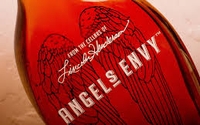
It may be the fault of Burger King's
Chicken Fries. Several years ago, Crispin Porter + Bogusky (CP+B) helped to launch the fast food's new menu item which proved to be a multimillion-dollar success. "Instead of a fee for BK, we
should have gotten two cents for every chicken fries sold," jokes CP+B's Chuck Porter.
This realization along with the new economic realities of the advertising business drove CP+B
to create a special group focused on developing and marketing brands owned by the agency. Today, CP+B’s new product initiatives have become a significant and growing segment of the its overall
business, helping to attract and retain talent and playing a meaningful role in the agency’s future.
"After the crash in 2008, fees got smaller, economies changed and we needed to
move beyond advertising," says Porter, one of the agency executives who outlined the shop’s product creation efforts to Advertising Week attendees.
advertisement
advertisement
The agency's first projects
were more about learning lessons than developing successful products. They first turned to sponges since they are "the most boring thing in the world." These Twist sponges taught CP+B that they "don't
know how to make sponges" and more importantly, introduced them to venture capitalists to help fund their future efforts.
Another project to introduce bike sharing programs across the
U.S. was more successful. There are currently 30 cities offering B Cycle services, yet it took a lot of funding and legwork. All of this work yet "ending up with only 8% [equity] is not the best place
to be," says Porter. This deal taught them "how to negotiate."
Then CP+B discovered an effective business model. The agency got into the liquor business with its Angels Envy bourbon.
They "leveraged the power of design by putting the design in the center of the process. Not as an aesthetic and decoration, but to use design as the heart of the problem," says CP+B's Neil Riddell.
The unique bottle and story behind the company made the brand visible, and importantly, CP+B found great partners that knew how to create buzz and distribute the product. In March, Bacardi acquired
the liquor business for "way more than I thought they would," says Porter. This deal, in turn, served as the agency's "proof of concept."
This product creation strategy includes making sure
the decision-maker acts in lockstep with all participants. "We do it for equity and partner with A-list operators," says Riddell. CP+B works with these partners to form a three-legged stool, with the
agency bringing expertise in product design and brand platform. "We are not a vendor, but sit at the management table," says Riddell. Indeed, they like being in charge. "Instead of clients setting
priorities, we set the rules.”
"There are inherent flaws with the current system," says Riddell. "Our culture of adventure [means we] spend time being a client which makes us
[understand their positions and makes us] better problem solvers."
These ventures are already helping with recruiting. Talent is attracted to the fact the CP+B owns equity in these
projects, meaning every person benefits from deals such as Angel's Envy's sale. "Instead of specialists, we look for generalists that are fluid in lots of different mediums," says Riddell. "It leads
to better work."
The agency is currently working on three new projects that agency executives hope will replicate the success of Angel's Envy. Papa's Pilar rum brand with partner Bacardi
is built around the persona of Ernest Hemingway. In addition to rethinking how to advertise this liquor, the agency is looking at disrupting the entire structure, including distillation and packaging.
"We are the perfect foil to systemically disrupt the category," says Siddell.
Noll surf brand hopes to reinvigorate the surf category by shifting away from cliché flowery images
to focus on performance and heritage. And Dolomite is an Italian mountaineering brand notable for the fact that Italy does not have any dominant outdoor brands.
Not all initiatives have
proven successful. When the agency worked with Volkswagen to introduce the Golf vehicle in the U.S., CP+B decided to try its hand at designing cars by reimaging VW's The Thing. Although U.S.
executives were thrilled with the results, executives in Munich were less than enthused and told agency executives to stick with creative.